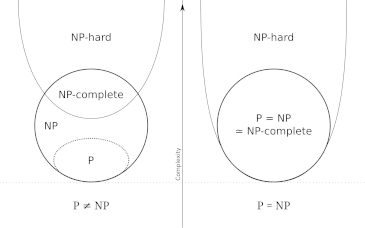The Checker Maven
The World's Most Widely Read Checkers and Draughts Publication
Bob Newell, Editor-in-Chief
Published every Saturday morning in Honolulu, Hawai`i
Noticing missing images? An explanation is here.
Cute and Acute
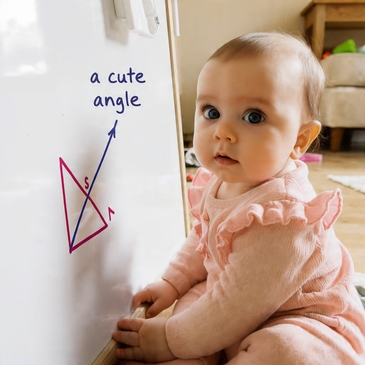
Can something be both cute and acute, as in "sharp" or an "acute angle"? We think so, and we're about to show you an example.
This month's speed problem is another easy one, but it's also definitely cute. And acute. You'll see what we mean when you solve it. Beginners might have to think a bit but experienced players should solve it quickly.
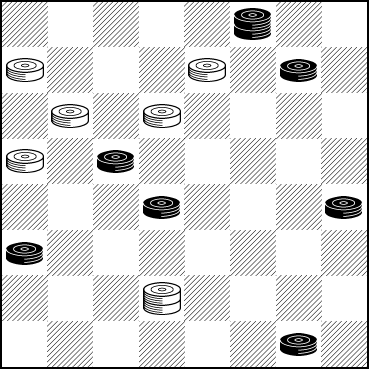
BLACK
Black to Play and Win
B:WK7,20,23,24,26,28:B1,12,13,15,19,25,K30
When you've come up with your solution, a cute (or should that be acute) quick of the mouse on Read More will allow you to check your solution.![]()
Zugzwang! Problem Contest 60
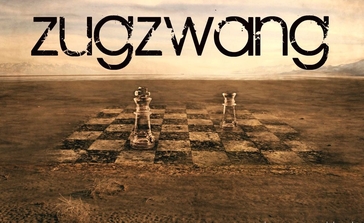
Zugzwang. Compulsion to move, made up of the German roots Zug, move (among other meanings) and zwang, compulsion or force. A situation in which a player has to move even though it will mean losing or incurring a major disadvantage. It's a term commonly associated with the game of chess, but it applies to checkers as well.
The 60th entry in Bill Salot's amazing ongoing series of checker problem composition contests features the theme of Zugszwang with four stellar problems illustrating this principle. Solve them, enjoy them, and by all means vote for the one you think should be the winner.
As always, the action takes place on our current contest page.
To get you started, here's an example. It's by Jim Loy and was the winning problem in Contest 34, August 2017, which featured the same theme as today's contest.
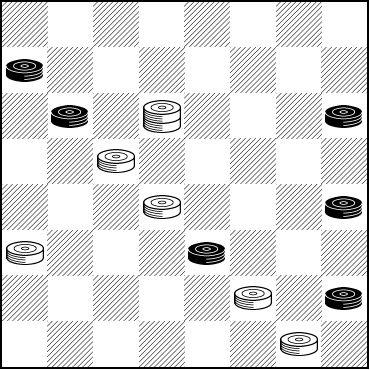
WHITE
White to Play and Win
W:WK10,14,18,21,27,32:B5,9,12,20,23,28
After you've tried this one, click on Read More to see the solution and then hurry over to the current contest page for more Zugzwang enjoyment.![]()
New Year's Day 2022
This column is being published on New Year's Day, 2022, and The Checker Maven wishes that the New Year will bring everyone health, happiness, and everything that you might wish for.
We don't know if or how you might have celebrated on New Year's Eve, but we know that it can often be a time of ... er ... a bit of overindulgence. If you did ... er ... overindulge a little, perhaps today you aren't ready to take on a grandmaster level checker problem. So instead, we'll take it easy on you and present a very nice, but not too difficult problem sent along by regular contributors Josh and Lloyd Gordon of Toronto.
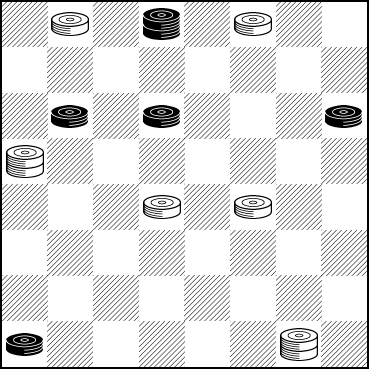
BLACK
Black to Play and Draw
B:WK1,14,15,K20,30,32:B4,21,23,24,K31
This one may take a short moment of thought but shouldn't tax you too much, and might help you to clear your head if that's necessary for you today. Give it a try and then click on Read More to check the solution.![]()
Merry Christmas 2021

This column will appear on Christmas Day, 2021, and whatever holiday you celebrate, in whatever way you celebrate it, The Checker Maven wishes everyone the best of the season. Even in these days of extreme political correctness, we have no hesitation to say "Merry Christmas to one and all," and if you find that friendly wish offensive, that's on you.
On major holidays we like to present problems from great composers of a bygone day. Today, we feature a prize problem by the great Fausto Dalumi. The problem was first published back in 1929, going on a hundred years ago.
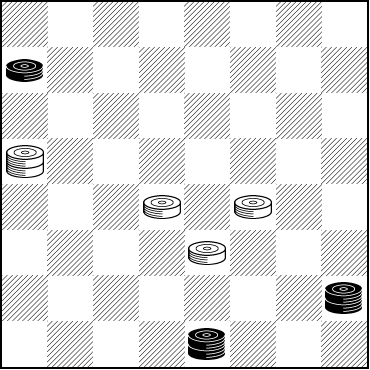
WHITE
White to Play and Win
W:WK13,18,19,23:B5,K28,K31
White is a piece up but winning a won game isn't always easy. We think you'll really enjoy the challenge of this problem. Solve it with good cheer and then merrily click on Read More to celebrate the solution.![]()
State of the Art

Shown above is what's said to be a "state of the art" kitchen. At least, that's what it was perhaps fifty years ago. But things move ahead. Fifty years is a long time. A lot can change.
In recent times, there have been some significant developments in the field of computer checker engines. Machine learning arrived in KingsRow and later in Cake. That was a huge accomplishment, but it wasn't quite the last chapter of the story.
When today's latest computer engines didn't solve Brian Hinkle's "Prize Problem" world class checker programmers Ed Gilbert and Martin Fierz both looked into the issue. Their conclusions were similar and reasonable. Computer engines are set up for maximum strength during practical play, not for solving highly unusual problems.
But of course Ed and Martin didn't stop there. Ed created a selectable "solver mode" for KingsRow while Martin made some changes to the search function in the Cake engine. The Prize Problem was now solvable. (These new program versions have yet to see public release at the time this article was written.)
But Brian didn't stop his work, either, and went on to create a series of more and more unusual problems which took longer and longer for computers to solve..
So what was the outcome? There may always be problems which it simply isn't practical to program computers to solve in any reasonable amount of time. But the state of the art for checker engines has definitely advanced with the intriguing new work done by both Ed and Martin.
Here's one that Brian sent to Ed and Martin. We warn you, it's not easy.
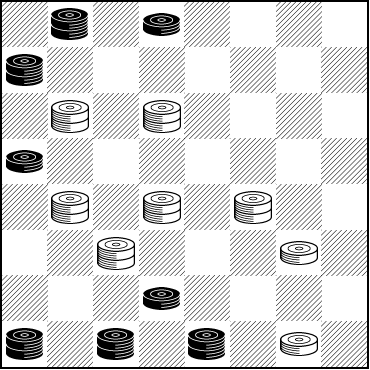
WHITE
White to Play and Win
W:WK9,K10,K17,K18,K19,K22,24,32:BK1,2,K5,13,26,K29,K30,K31
Do attempt a solution on your own before clicking on Read More to see how it's done. These problems are a great deal of fun and definitely test your thinking. Best of luck!![]()
Problem Composing Contest 59: Compound Strokes

Public Domain
In Chinese calligraphy, characters are formed from basic strokes and compound strokes of the writing instrument. The basic stroke involves one movement of the instrument while the compound stroke involves more than one.
In checkers, there are compound strokes as well. We'll let Mr. Bill Salot explain them as part of Unofficial World Championship Problem Composing Contest #59, which is now active and available on the contest page. Four tantalizing and action-packed problems by some of today's finest and most talented composers await your solving pleasure.
Be sure to vote for the one you think best.
Here's a sample of a compound stroke problem. It was the winner of Contest #44.
Leo Springer
BLACK
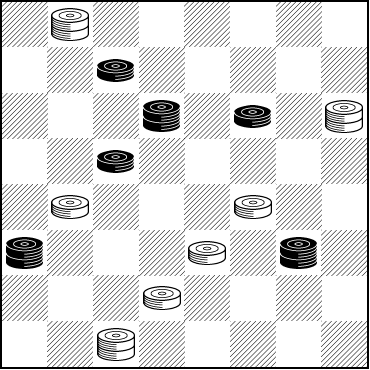
WHITE
White to Play and Win
W:WK1,K12,17,19,23,26,K30:B6,K10,11,14,K21,K24
See if you can sight solve it; lacking that, set it up on your board and try moving the pieces around. But there's no need to compound your frustration; pounding your mouse on Read More will show you the solution.![]()
A Different Prize Problem
The P=NP problem in computer science is one of the Millennium Prize Problems and if you can solve it, you'll win a cool $1 million prize from the Clay Mathematics Institute. We won't attempt to explain the problem here but it certainly can be said to be at the ultra-difficult level. The prize is yet to be claimed.
Turning to checkers, we recently we presented Brian Hinkle's Prize Problem which carried with it an award of $100 (not $1 million) to the first correct solver. Alas, that reward went unclaimed. Today we have a different sort of prize problem. It was published back in 1907 in the Canadian Checker Player magazine. The prize was a six-month subscription to that excellent publication of bygone days, and the prize was indeed awarded to a successful correspondent.
We'll not claim that the problem is up to Brian's grandmaster composing standards, nor will we offer anything beyond personal satisfaction for finding the solution. But it's nevertheless an interesting composition.
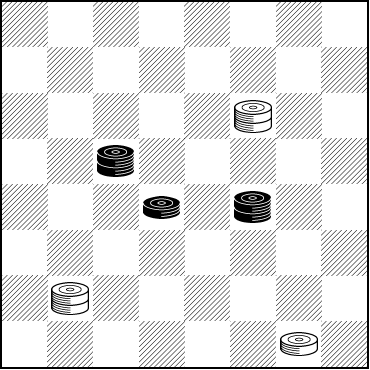
WHITE
White to Play, What Result?
W:WK11,K25,32:BK14,18,K19
Would you have won a half-year subscription to one of history's best checker publications? We'd offer you a free six month on-line subscription to The Checker Maven but that wouldn't be much of a prize given that our publication is already free. So solve it just for the fun of it, and claim a look at the solution by clicking on Read More. If you like, write to us and tell us if you might have been a winner well over a century ago.![]()
In Need of a Spare

Public Domain Pictures CC0
Uh-oh. Someone is going to have to get out that spare tire, and no matter how many times you've changed a tire on the road, it's never much fun.
There are other kinds of spares, of course. There is spare time (a rather rare commodity in the Checker Maven offices). You can be "spared" something unpleasant, like a visit to the dentist. A spacious home has "room to spare" --- and so on.
In today's Checker School column, we present a very old position attributed to William Payne. "Spare" also has a meaning in checkers, as you'll see.
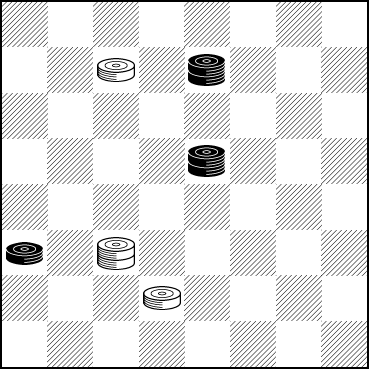
WHITE
White to Play and Win
W:W6,K22,26:BK7,K15,21
Of course, the problem is extremely easy and will be solved in a couple of seconds by players with even a moderate level of experience. But after you solve it, use a spare couple of minutes to click on Read More to see what point Andrew J. Banks, author of Checker Board Strategy, was trying to make.![]()
Action-Packed

Well, it may be called Camp Mosquito but it certainly looks to be a summer camp packed with active rather than passive adventure. Sounds good to us.
This month's speed problem is action-packed, too--- and quite active. Solve it and see why.
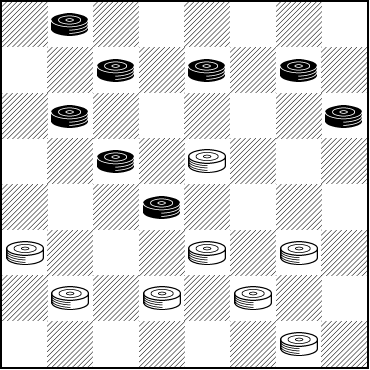
WHITE
White to Play and Win
W:W32,27,26,25,24,23,21,15:B18,14,12,9,8,7,6,1
We'd say it's on the upper end of easy in difficulty, not quite medium, but certainly not trivial and very nice. Skilled players won't need a lot of time. The rest of us might need a little longer, but it's definitely within reach. Take action, try it out, and then click on Read More to check your solution.![]()
Contest 58: Kingless
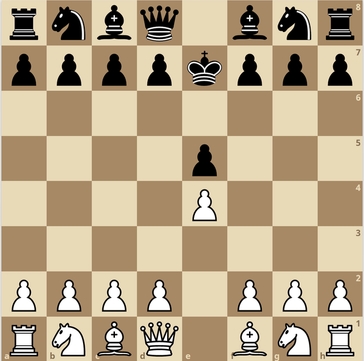
"Kingless" in chess isn't possible. The White King must be somewhere.
"Kingless" in checkers, on the other hand, is quite a normal situation.Contest 58 in Bill Salot's spectacular long-running Unofficial World Championship Checker Problem Composing Contest series has begun. and the theme of this contest is indeed Kingless. It features four disparate problems, all of whose settings contain no kings. However, this set of problems is free of multiple solutions and certainly isn't trivial.
The contest can be found, as always, at contests.checkermaven.com. It runs until the end of October. Be sure to try out the problems and cast your vote for the one you think should win the title.
For today's problem, Bill provided us with a "sample" kingless problem. It's not part of the contest but it illustrates what you have to look forward to. The problem is entitled Bewildered and is by well-known composer Roy Little.
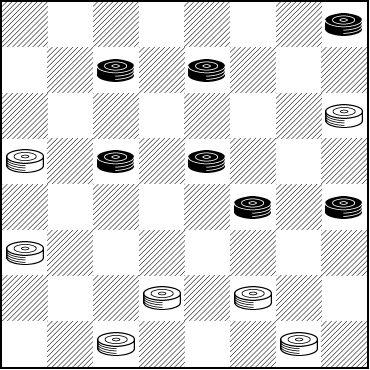
WHITE
White to Play and Win
W:W12,13,21,26,27,30,32:B4,6,7,14,15,19,20
Bewildering? Perhaps. You don't need to be the king of checkers to solve it, though; it's within reach if you put in the effort. When you're ready, give your mouse a kingly click on Read More to see the solution.![]()
The Checker Maven is produced at editorial offices in Honolulu, Hawai`i, as a completely non-commercial public service from which no income is obtained or sought. Original material is Copyright © 2004-2026 Avi Gobbler Publishing. Other material is public domain, AI generated, as attributed, or licensed under CC1, CC2, CC3 or CC4. Information presented on this site is offered as-is, at no cost, and bears no express or implied warranty as to accuracy or usability. You agree that you use such information entirely at your own risk. No liabilities of any kind under any legal theory whatsoever are accepted. The Checker Maven is dedicated to the memory of Mr. Bob Newell, Sr.


